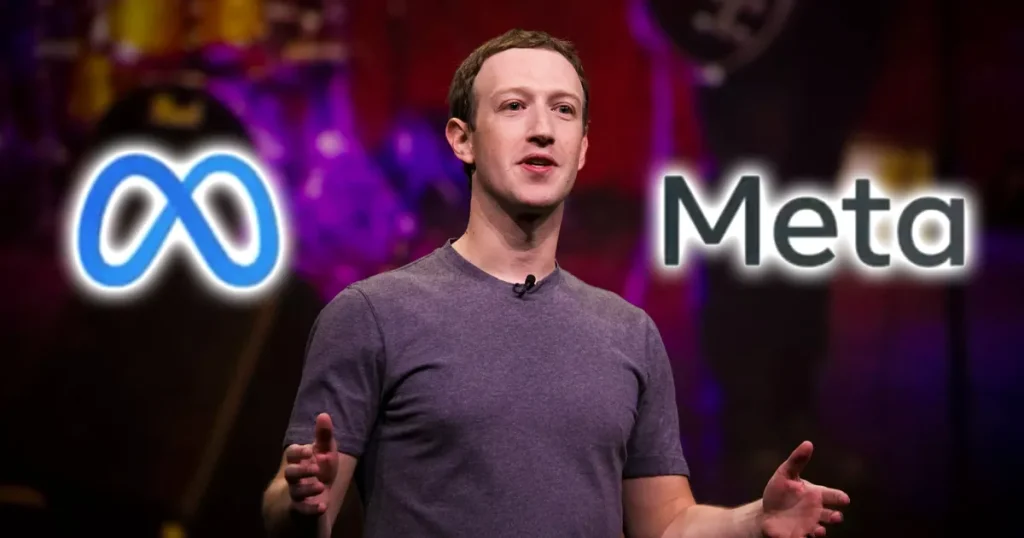Metaverse at its peak
During Facebook’s recent second-quarter earnings conference call, co-founder and CEO Mark Zuckerberg laid out his vision for the social media company’s transformation into a “superpower” business. pillar”, in what he called “one of the most exciting projects we will do. ” “Metaverse converges Facebook’s major investments in augmented reality (AR), virtual reality (VR), gaming, commerce and social into a single virtual environment.
Zuckerberg defines it as” an embodied Internet that you are inside instead of just looking at. The concept is that it will facilitate everything from social interaction to entertainment, shopping to working. It will be interactive, allowing consumers to easily move from one experience to another, and accessible in a variety of formats from multiple devices, from mobile apps and PCs to mobile apps. immersive VR and AR devices.
“Basically, today you can do everything possible on the Internet, plus some things that no longer make sense on the Internet today, like dancing,” Zuckerberg told investors. “The defining quality of the metaverse is presence, that is, the feeling of actually being there with someone else or in another place.
Creativity, avatars and digital objects will be central to how they we express ourselves, and this will lead to completely new experiences and economic opportunities. According to Zuckerberg, the metaverse will not only be “the next chapter for us as a company” but also the next generation of the Internet. Facebook, for its part, is making investments” (CFO Dave Wehner calls them “billions”) in building out its part of the virtual world.

Not everyone shares Zuckerberg’s relentless enthusiasm. The founder and CEO of Niantic, the developer of the AR game Pokémon Go, recently published a blog post comparing such a virtual world to a “dark nightmare.” The novels, films, and television shows that inspired the concept of the metaverse (a term coined by Neal Stephenson in his 1992 science fiction novel Snow Crash) “really play a role,” writes John. as a warning about a dark future of technology gone wrong.” Hanke.
While Zuckerberg thinks virtual worlds will bring a stronger sense of presence to the people around you and the places you want to go, Hanke thinks it will have the opposite effect. “We believe we can use technology to tap into the ‘reality’ of augmented reality, encouraging everyone, including us, to get up, walk outside, and connect with others as well. like the world around us. This is what we humans were born to do, the result of 2 million years of human evolution, and as a result, these are the things that make us happiest. “Technology should be used to enhance these fundamental human experiences, not replace them,” he wrote.
Metaverse Governance Dilemma

Navigating the Path to Decentralization
“Metaverse at Its Peak: Navigating the Path to Decentralization” encapsulates the central theme of the discussed topic. It highlights the challenge of governing the emerging metaverse, where various companies, like Atari, Epic Games, and Nvidia, are actively involved in its development. The key concern is whether there will be a single, centralized metaverse or a more decentralized ecosystem.This emphasizes the ongoing debate regarding how the metaverse should be managed and who should have control, especially in the context of “metaverse at its peak.” It hints at the importance of decentralization to avoid monopolization by tech giants and touches upon the desire for open participation.Overall, it sets the stage for a discussion about the governance issues and potential solutions in the evolving metaverse landscape.In this dynamic landscape, the “metaverse at its peak” represents not just a technological frontier but also a societal and ethical one. Balancing innovation with inclusivity, and competition with collaboration, becomes paramount. As we embark on the journey towards decentralization in the metaverse, it raises critical questions about data privacy, digital rights, and equitable access to these virtual realms.
The metaverse, at its peak, represents a fusion of technology and society. It’s not just about technology but also about ethics, privacy, and equitable access. Striking the right balance between innovation and inclusivity is a challenge we must confront. The vision is a metaverse where users can seamlessly navigate from one experience to another, fostering connections and creativity across departments and domains.
The journey towards decentralization in the metaverse raises essential questions about data privacy, digital rights, and the democratization of this digital frontier. It’s a frontier where the metaverse at its peak serves as a symbol of boundless potential, a canvas where we paint a future that values diversity, openness, and collective participation.
Build on open-source technologies. Open-source technologies are essential for decentralization, as they allow anyone to contribute to the development and maintenance of the metaverse. This helps to ensure that no single entity has control over the metaverse.
Use blockchain technology. Blockchain technology is another key enabler of decentralization. It can be used to create tamper-proof records of ownership and transactions, which is essential for a decentralized metaverse.
Empower users to govern the metaverse. In a decentralized metaverse, users should have a say in the development and governance of the platform. This can be achieved through mechanisms such as decentralized autonomous organizations (DAOs) and on-chain voting.
Promote interoperability. A decentralized metaverse should be interoperable, meaning that users should be able to move their assets and identities between different metaverse platforms. This will help to create a more open and competitive metaverse ecosystem.
Here are some specific examples of how we can navigate the path to decentralization in the metaverse revolution:
Create decentralized metaverse platforms. This could involve building new metaverse platforms on open-source technologies and blockchain, or integrating decentralization into existing metaverse platforms.
Develop decentralized metaverse applications. These could include decentralized social media platforms, decentralized games, and decentralized marketplaces.
Educate users about decentralization. It is important to help users understand the benefits of decentralization and how to participate in decentralized metaverse governance.
Support decentralized metaverse initiatives. This could involve investing in decentralized metaverse projects, or simply using decentralized metaverse platforms and applications.
This will be very crucial in metaverse and as its happening around us and it will help us determine , Metaverse at its peak or not


nice post
thanks man